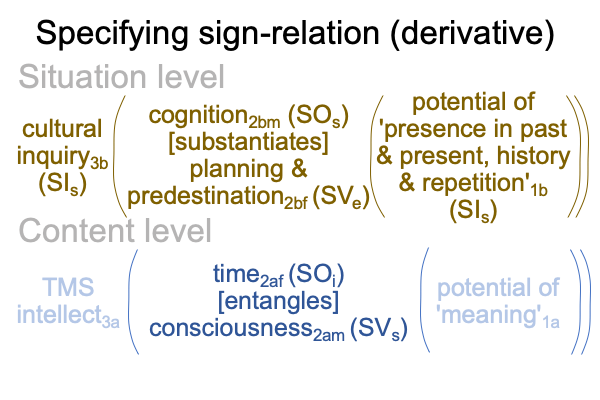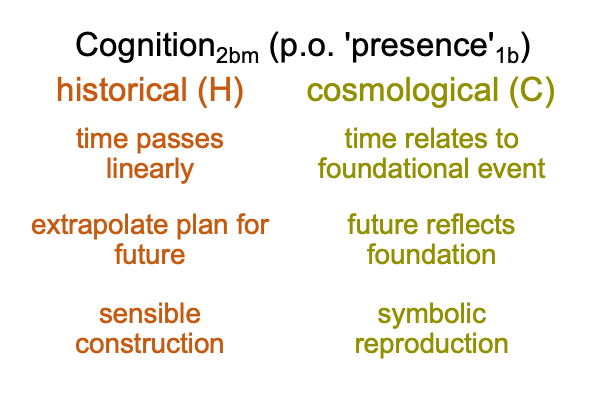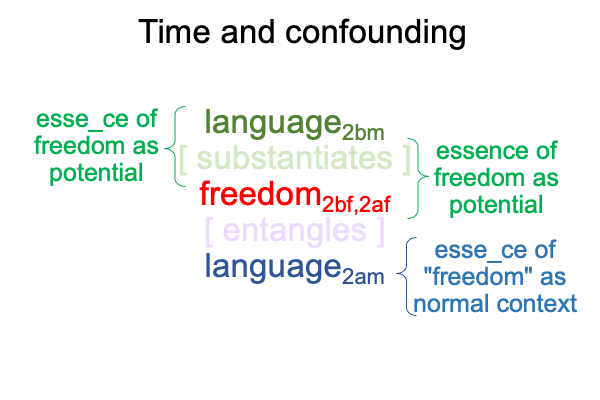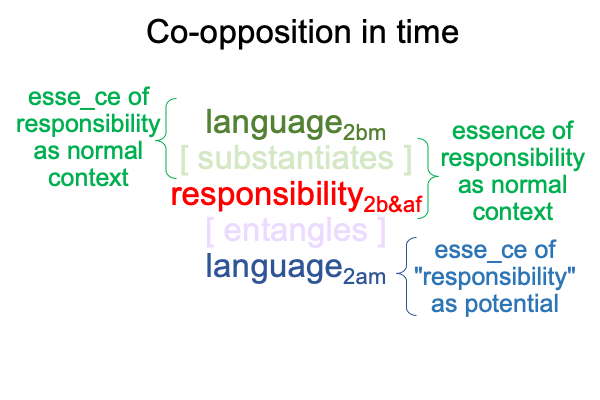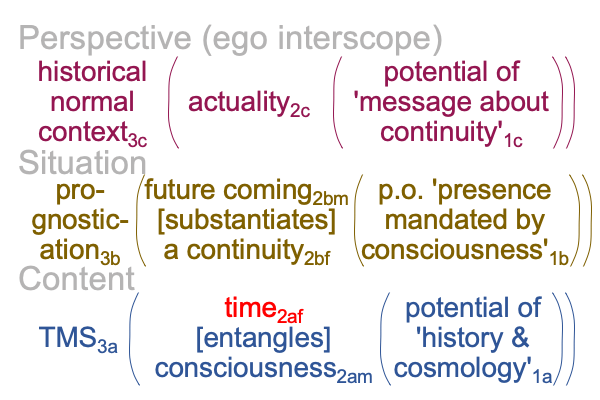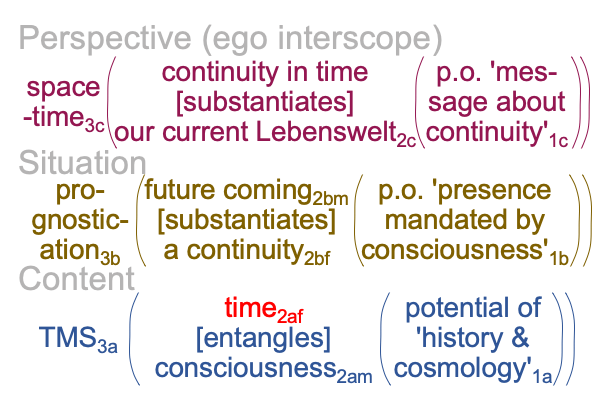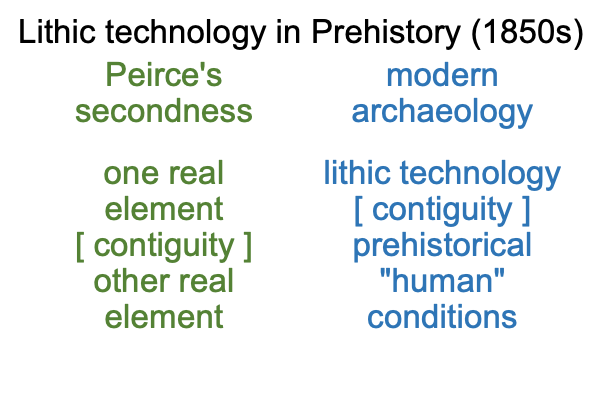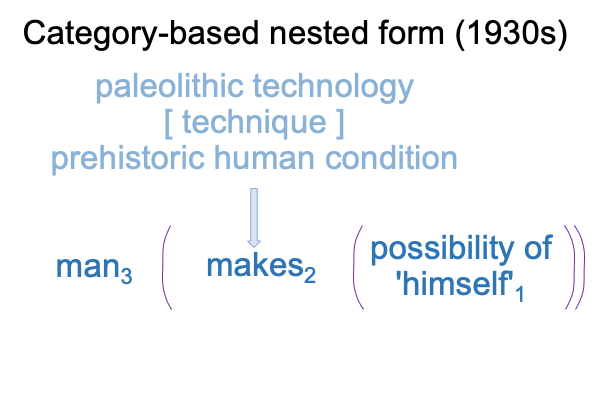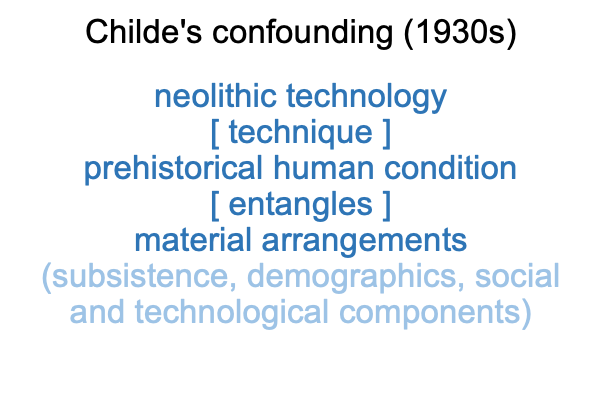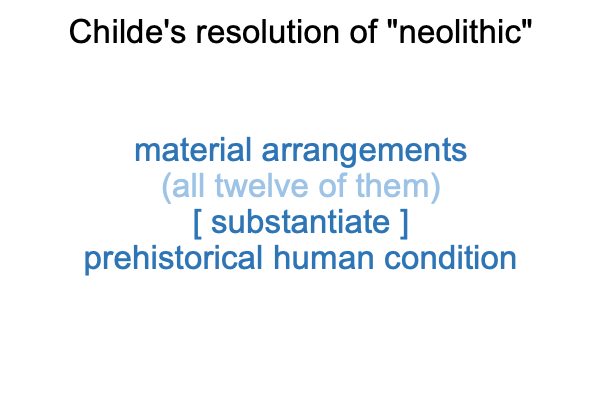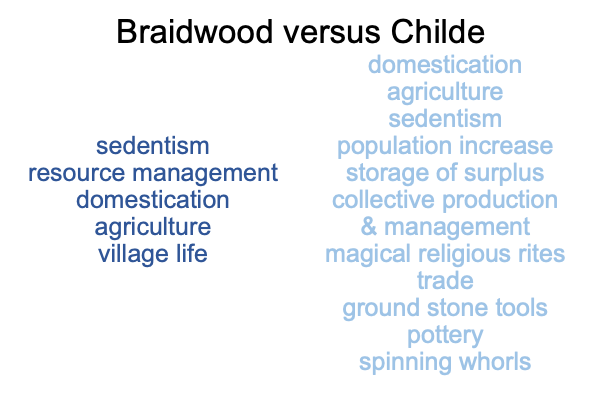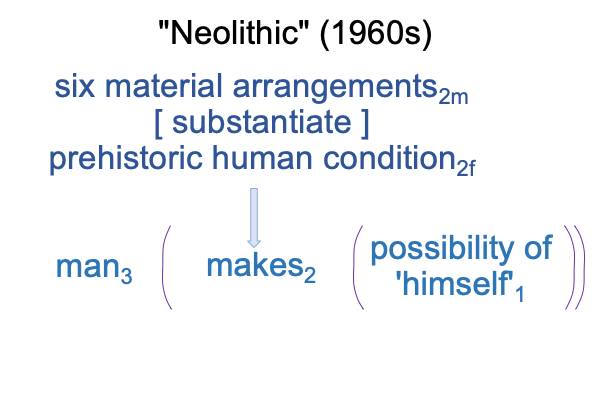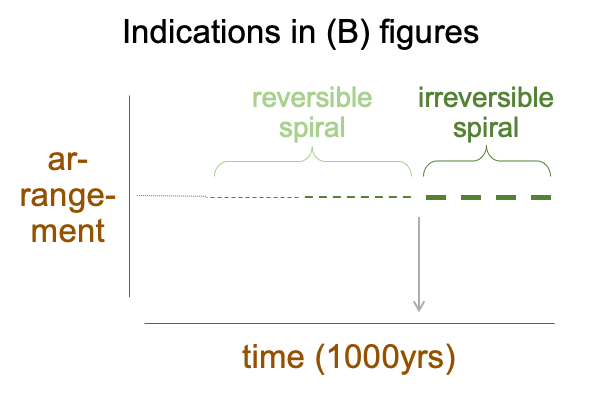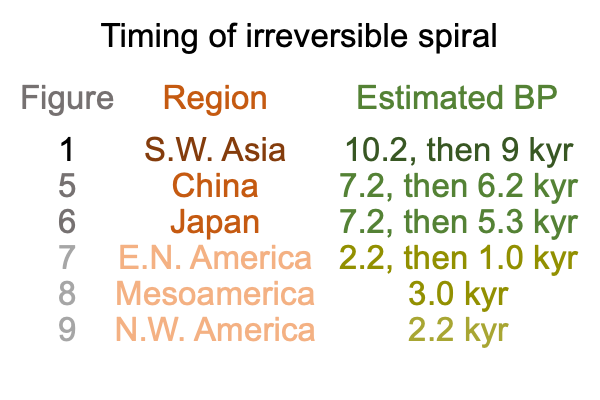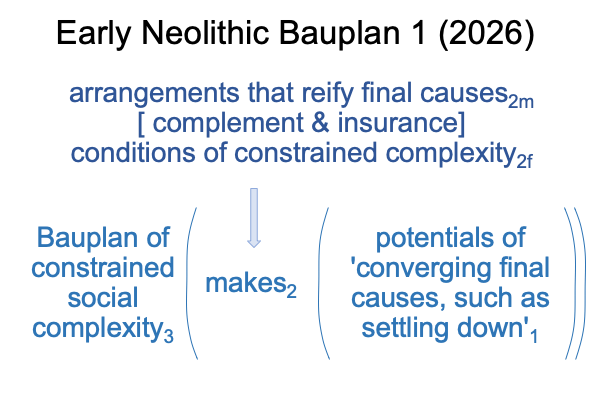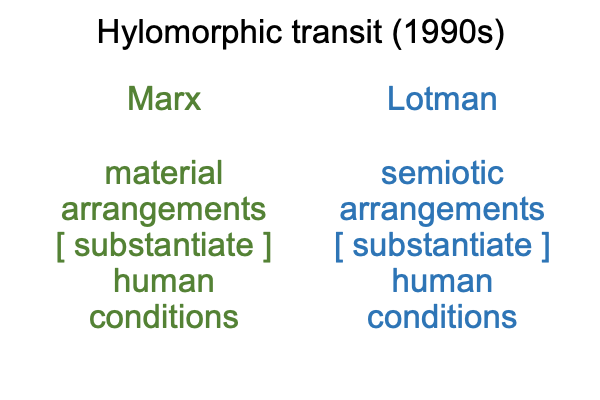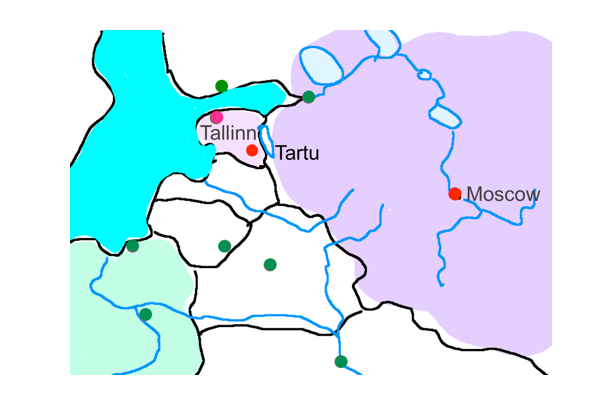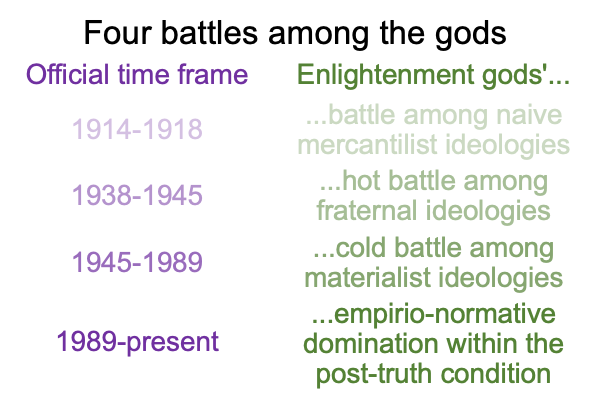Looking at Boris Uspenskij’s Article (2017) “Semiotics and Culture” (Part 4 of 8)
0682 Finally, I come to the perspective-level for the fundament interscope.
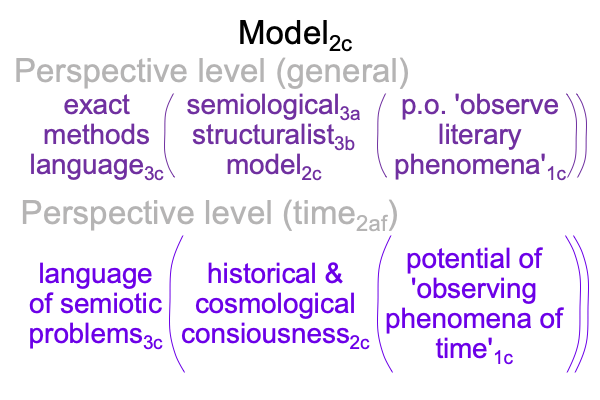
0683 The normal context of a language of exact methods3c brings the actuality of a semiological3a structuralist3bmodel2c into relation with the potential of ‘observing phenomena in a literary text’1c.
Language2bm is both the matter that substantiates the literary text2bf (esse_ce) and the observable facets (or phenomena) of the substantiated text (that is, the essence2bf).
0684 Here are my associations to Uspenskij’s text.
The normal context of a language of semiotic problems3c brings the actuality of historical and cosmological consciousness2c into relation with the potential of ‘observing the phenomena of time’1c.
0685 The semiological3a structuralist3b model2c is historical and cosmological consciousness2c.
In our current Lebenswelt, historical and cosmological time are distinct explicit abstractions.
In the Lebenswelt that we evolved in, the distinction cannot be talked about using hand talk, even though the distinction is intrinsic to the (proposed) hand-talk word-gestures.
0686 The fact the Uspenskij does not state that historical and cosmological consciousness2c is a semiological3astructuralist3b model2c is telling. He intuitively performs what this examination depicts explicitly, by filling in the blank slots of a purely relational structure, because the purely relational structure expresses an implicit abstraction.
0687 Say what?
What is Uspenskij doing implicitly that this examination is doing explicitly through diagrams?
0688 Uspenskij builds the foundation for an interventional sign-relation.
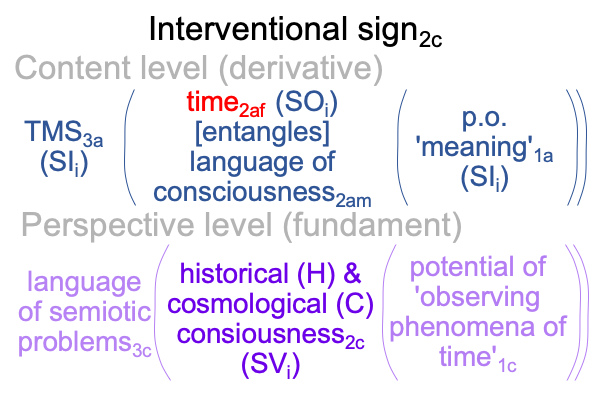
Historical and cosmological consciousness2c (SVi) stands for the dyad2a, {time as literary form2af (SOi) [entangles] a language of consciousness2am} in regards to the normal context of the TMS3a operating on the potential of ‘meaning’1a(SIi).
0689 Uspenskij performs the interventional sign-relation flawlessly and without hesitation.
The interventional sign-relation passes from the perspective level of the fundament (or loquens) interscope to the content level of the derivative (or ego) interscope.
0690 This particular application of the interventional sign-relation reminds me of the opening of the gospel according to John, re-presented here with my own ad-hoc commentary.
In the beginning was the Word (Loquens), and the Word (both the Word-Gesture and the Spoken Word) was with God, and the Word (Ego, Jesus the Messiah) was God. Jesus (as an element in a triadic relation) was in the beginning with God (the one triadic relation); all things (that can be pictured or pointed to using hand talk) were made through him, and without him was not anything made that was made (including me, an ego as an image of God).
0691 How informative.
The New Testament application brings me back to the structure of the interventional sign-relation.
Here is a related example.
The Word as the beginning (a semiological3a structural3b model2c of biblical revelation) (SVi) stands for {the gospel of John as a literary text2af (SOi) [entangling] consciousness of the Word (the Logos)2am} in the normal context of the tradition of Christ3a operating on the potential of ‘meaning’1a (SIi).
0692 So, what am I saying?
Is it possible for the TMS positivist intellect3a to contextualize the metaphysical?
Absolutely, since material and efficient causations operate seamlessly with formal and final causalities.
0693 Uspenskij is a scholar of Slavic languages and the Slavic civilization does not become a people until St. Cyril and St. Methodius introduce a theological theory about the nature of Who I Am. The Scandinavian Vikings who build a fort and proclaim sovereignty over the realm do not define the Slavic civilization. Mundane sovereignty does not give the Slavs meaning1a, presence1b and message1c. Celestial sovereignty does.
In the conversion of the Slavs, Christ introduces Aristotle to the narod.
In the ensuing generations, Slavic civilization explores Aristotle’s hylomorphe of {matter [substantiates] form} all the way to its full inversion of {form [entangles] matter}.
0694 Here is a depiction of Uspenskij’s revelation.
Er… I meant to say “confounding”.
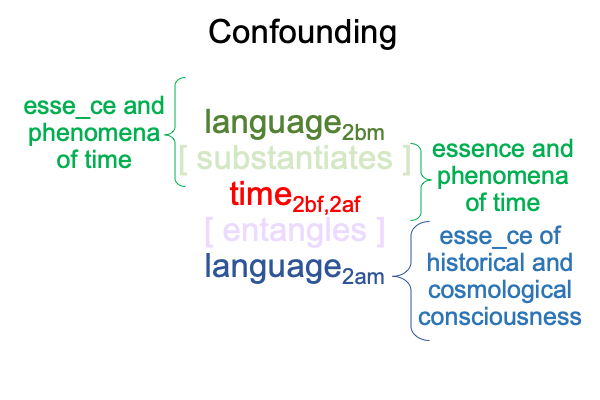
0695 The implications of the confounding, a binary of matter, have yet to be explored.
0696 One point is certain.
Western civilization, when it abandons metaphysics in order to achieve ideological purity within the Positivist’s judgment, lost the ability to recognize confoundings.
The scientific West is blind.
Through TMS, vision may one day return.

